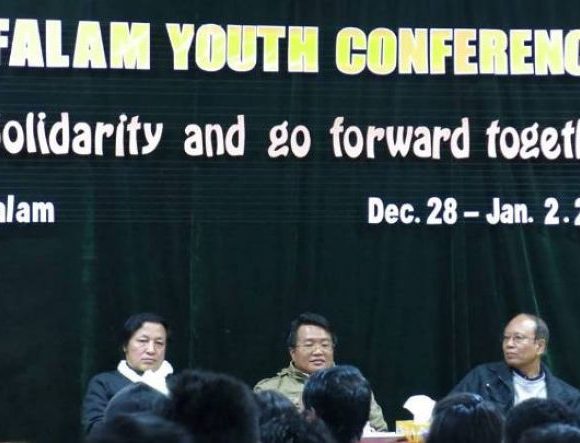The End of Dictatorship in Burma is Underway
By giving a careful analysis on the Burma military rulers’ game, what it clearly indicates is that the regime has determined to stay on power until they are completely removed from their chair. Recalling the past, the National League for Democracy won the 1990 election in which the people of Burma expressed their free will in a legitimate way. Because of her works and commitments to bringing freedom and democracy in Burma, Daw Aung San Suu Gyi received the Noble Peace Price.
Though the military regime knows that the people of Burma rejected them, they insist to stay on power by refusing to implement democracy in Burma. The fact of the matter is that the Burmese regime has proven itself to be “unacceptable government” both to the people of Burma and the whole civilized world.
The picture of this regime’ real intention was more clearly seen when the Embassy of the military rulers of Burma in Washington DC refused to welcome the two Noble Peace Price winner Jody Williams and Dr. Shirin Ebadi who were recently there to express their support for freedom and democracy in Burma. This refusal indeed is a humiliation to the ‘World Peace Body”.
Dr. Shirin from Iran has called this as “a tragedy”. “They (dictators of the Burmese regime) are afraid of democracy and freedom”, she says. No surprise, but many similar shameful deeds have been committed by the regime at the international political arena. But the fact that they actually are afraid of freedom simply means that they will not implement democracy in their life time. This further means they will rather choose to die than live with democracy!
Decades long political deadlock created by the successive regime in Burma from which every Burmese citizen suffers—thousands of Burmese citizens: students, civilians, and monks have been killed; woman have been raped; children have been deprived of their future—yet the regime still wants to manage to implement its strategy of cleansing the ethnic nationalities by attacking them and destroying their homes and lands. The continuous repressive dictatorship actions have resulted in the spreading of AIDS decease and drugs trafficking to the neighboring countries. The World now views the Burmese dictatorship’s action not only as the internal matter, but also a treat to the peace and security in the region.
The South East Asian Nations, who traditionally upheld the policy of non-interference on Burma, now sees the regime’s behavior embarrassing to them. It is likely that ASEAN will take a tougher stance on Burma in future.
The International Labor Organization (ILO) is suing the suppressive regime at the International Court of Law for its continuous practices of forced labor.
The UN Security Council put the Burma issue as its formal agenda on September 29, 2006. I must here acknowledge the pivotal role played by the Bush Administration which indeed made it possible to reach the Burma issue to the table of the UN Security Council. Several governments, organizations, and individuals worked hard for this historic achievement as well. However, in order to fully implement the unprecedented step already taken, the Security Council must pass a binding resolution which would accordingly support the full implementation of democracy in Burma. The US has reiterated that it will push the Council towards passing a binding resolution on Burma. There are two possible ways for the Council to adopt the resolution on Burma.
The US has been pursuing Russia and China to agree with its draft resolution on a consensus basis as her first attempt. In case it doesn’t work, the US will demand the decision make by the fifteen Security Council members’ vote. In which case, the US should predictably get at least nine votes in favour of adopting resolution. It is highly unlikely that Russia and China will veto against it. Because they know if they do the international community and Burmese democratic forces will surely denounce for such action and for which they would surely be embarrassed. The question here is: what will happen if the resolution on Burma were adopted by the Security Council? Will it really be effective for Democracy in Burma? etc…
In my view, the resolution will surely be effective once it is adopted and implemented. All the 192 member States of United Nations including China and Russia will have to abide by the resolution passed by the Council. The dictatorship in Burma, however, to be consistent with their past choices and show their stubbornness, is unlikely to comply with any kind of resolution. They have showed it again and again that they will not listen to the International community or the UN Security Council. As usual, the Burman Generals continue to suppress the political opponents inside and have not cared about outside pressure.
Looking at the pressure against the regime exerted by the international community, what is clear is that the Generals have no more room to escape. They may choose not to listen to the democratic forces’ calling and choose not to care about the UN Security Council action, but in the end, they must face what they must face like any other World Tyrannies have had to face. They may chose to continue to do their way of killings and torturing the people of Burma until the actual time comes for their end. Certainly, now that the world is speaking out against the cruel atrocities of this Burmese regime unlike before, their end may not be too far away from now!
Salai St. Laini is a Chin student activist based in USA. He is a recipient of the USAI Scholarship. He received his Bachelor of Science degree from Indiana University Bloomington.
Salai St. Laini
January 12, 2007




